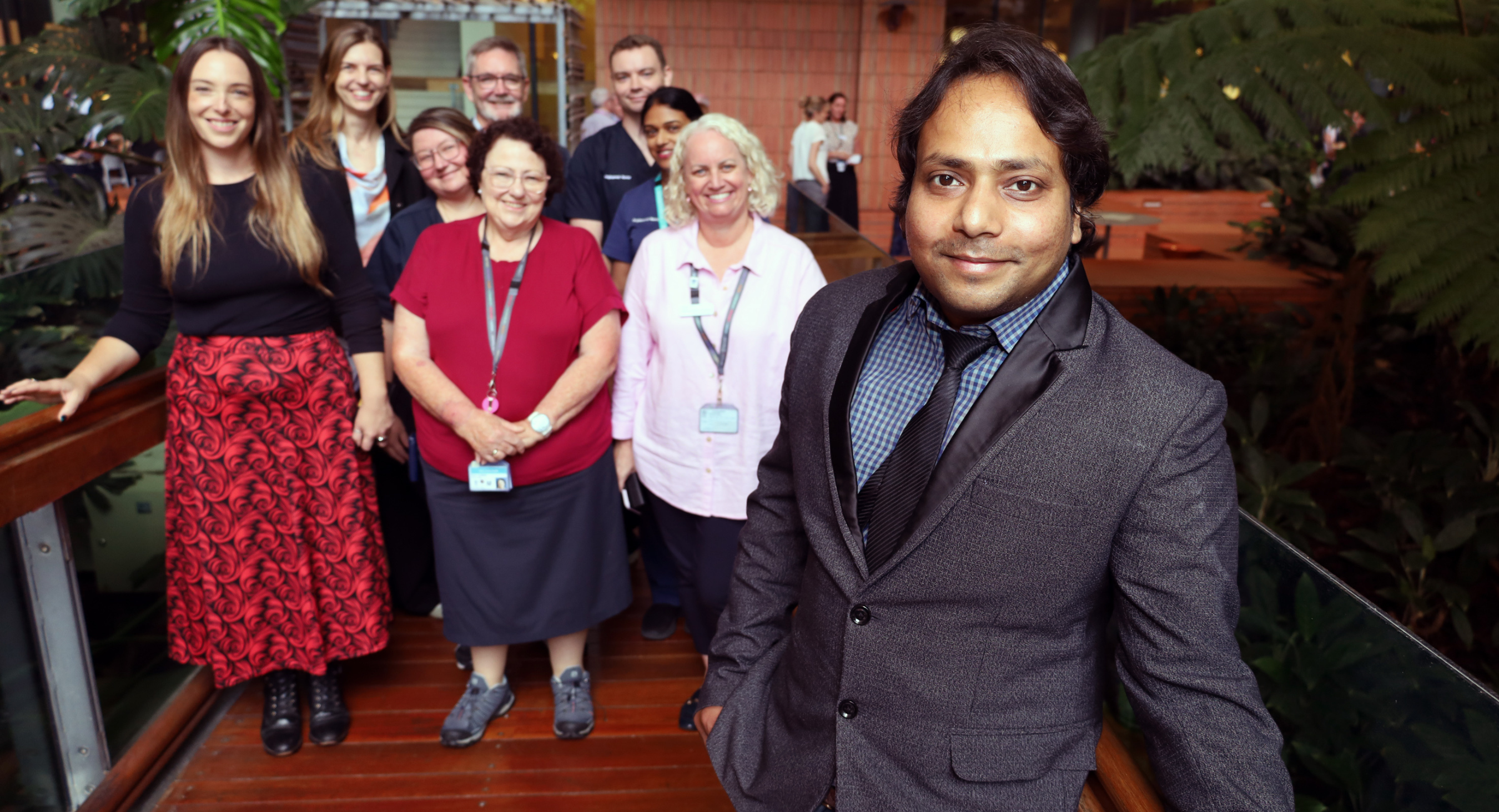
The PA Hospital team who run the Metro South Clinical Tuberculosis Service celebrated 75 years of Tuberculosis Care in Queensland this month acknowledging the decades of contribution to this significant area of care.
With 10.8 million people worldwide falling ill from the disease in 2023 and 1.25 million people losing their lives, Tuberculosis is now regarded as the world’s deadliest infectious disease caused by a single pathogen.
The Metro South Clinical Tuberculosis Service, based on the PAH campus, diagnose and treat complex disease such as drug-resistant TB as well as contact tracing efforts to protect close contacts of infectious cases.
Dr Geoff Eather, who leads the service, has significant experience in diagnosing and treating complex diseases such as drug-resistant TB.
“TB is being treated with antibiotics developed in the 1950s and 1960s, but some of the bacteria causing the disease have mutated, leading to antimicrobial resistance,” he said. “Among the challenges is treating people with weakened immune systems or those battling other diseases at the same time.”
Despite these challenges, it is an exciting time for research. PA Hospital clinicians are collaborating with researchers at The University of Queensland at the outstanding lab facilities of the Translational Research Institute.
University of Queensland (UQ)’s Professor Antje Blumenthal is focusing on molecular mechanisms that control immune responses to bacterial infections with the aim of using them for improved treatments of challenging infections such as TB.
“What is needed is new knowledge and strategies that will help us develop treatments that act faster and have less side effects. This can be new antibiotics but also might be strategies to help the body’s immune response better control the bacteria.
“We anticipate that helping the immune system control the infection makes it harder for the bacteria to develop resistance against such treatments,” she said.
This is where the collaboration with Dr Eather is essential, giving Professor Blumenthal clinical insights into the challenges faced when treating TB, exploring the impact of TB treatments on the gut microbiome, laboratory models to better understand immune responses, and screening drugs to determine their efficacy.
“In the same way that immunology research is helping us understand how the immune system can be used to fight against cancer, we hope to understand mechanisms that will help us to develop host-directed interventions for TB.”
IT Engineer, Rahul Kumar is a patient cured by the Metro South Clinical Tuberculosis Service stating that the TB Service brought clarity, education and security to his personal situation through the guiding light of his nurse, Helen.
But the journey to diagnosis was fraught with speculation.
“I was diagnosed by the GP as having ‘something’ in my lungs. I was very underweight. First, they said it was caused by eating red meat – I am a long-time vegetarian, then possible lung cancer,” he said.
“When I met Helen, I learned that TB is a bacterial infection of the lungs, not a virus, which can be cured with antibiotics. The treatment was not painful, there was no surgery and the doctors and nurses here at PA did everything to make testing and medications as flexible as possible while I was completing my MBA study.”
In a world threatened by antimicrobial resistance, the partnerships formed across the clinical, research and laboratory spectrum are proving that treatment innovations can be applied to a wide variety of diseases – even a deadly centuries-old disease like tuberculosis.